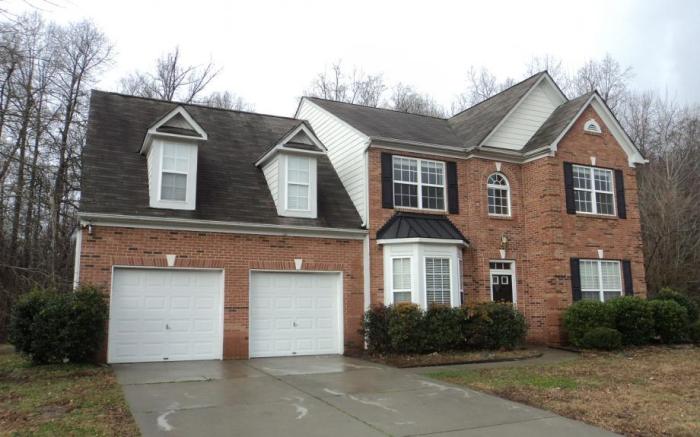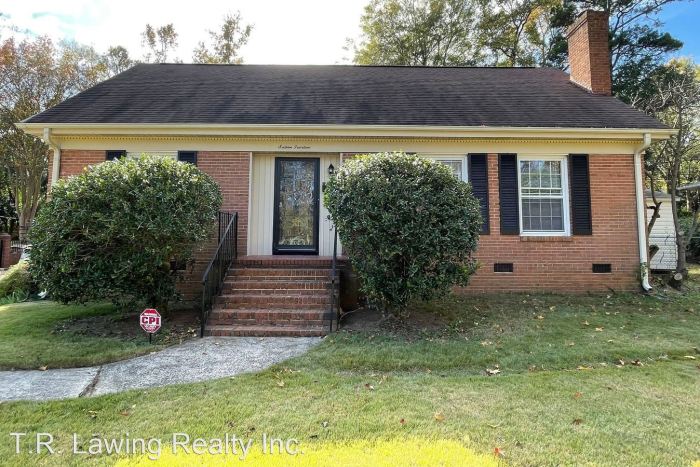House to Rent in Charlotte Your Guide
Charlotte Rental Market Overview
House to rent in charlotte – The Charlotte rental market is currently experiencing a dynamic environment, influenced by factors such as population growth, economic conditions, and new construction. Understanding the current state of the market is crucial for prospective renters.
Current State of the Charlotte Rental Market
Charlotte’s rental market is competitive, with strong demand driving rental prices upward. The city’s robust job market and attractive lifestyle contribute to this high demand. Availability varies across neighborhoods, with some areas experiencing higher vacancy rates than others.
Popular Neighborhoods for Renters
Several neighborhoods consistently rank highly among renters in Charlotte. These include Uptown, South End, Plaza Midwood, NoDa, and Myers Park. Each offers a unique blend of amenities, proximity to employment centers, and overall lifestyle appeal.
Rental Price Comparison Across Neighborhoods
Rental prices in Charlotte vary significantly depending on location, property type, and amenities. Uptown and South End tend to command higher rental rates due to their central locations and high demand. More suburban areas generally offer lower rental costs.
Types of Rental Properties Available
Charlotte offers a diverse range of rental properties, including single-family homes, apartments, townhouses, and condos. The choice depends on individual preferences, budget, and lifestyle needs.
Average Rental Prices Per Square Foot
| Neighborhood | Average Rental Price/sq ft |
|---|---|
| Uptown | $2.50 – $3.50 |
| South End | $2.25 – $3.25 |
| Plaza Midwood | $1.75 – $2.75 |
| Myers Park | $2.00 – $3.00 |
Factors Influencing Rental Prices
Several key factors significantly impact rental prices in Charlotte. Understanding these factors is essential for making informed rental decisions.
Impact of Location on Rental Costs, House to rent in charlotte

Source: cloudfront.net
Location is the most significant factor influencing rental prices. Properties in desirable, centrally located neighborhoods like Uptown and South End command higher rents due to their convenience, amenities, and proximity to employment centers. Conversely, more suburban locations typically have lower rental rates.
Relationship Between Property Size and Rental Price
Generally, larger properties with more square footage command higher rental prices. This is due to increased construction costs, higher property taxes, and greater demand for spacious living areas.
Influence of Amenities on Rental Rates

Source: rent.com
Amenities such as a swimming pool, garage, updated appliances, and pet-friendliness significantly influence rental rates. Properties with desirable amenities typically command higher rental prices due to increased convenience and desirability.
Comparison of Similar Properties in Different Areas
A direct comparison of similar properties (e.g., two-bedroom townhouses) in different areas of Charlotte clearly demonstrates the impact of location on rental cost. A townhouse in Uptown will typically rent for significantly more than a comparable townhouse in a more suburban neighborhood.
Prioritized List of Factors Influencing Rental Prices
- Location
- Property Size
- Amenities
- Property Condition
- School District (for families)
Finding and Renting a House in Charlotte: House To Rent In Charlotte
The process of finding and renting a house in Charlotte involves several steps. Careful planning and preparation can significantly streamline this process.
Step-by-Step Guide to Searching for Rental Houses
- Determine your budget and desired location.
- Utilize online rental listing websites (e.g., Zillow, Apartments.com).
- Contact real estate agents specializing in rentals.
- Schedule viewings of properties that meet your criteria.
- Submit a rental application.
- Negotiate lease terms.
- Sign the lease agreement.
Tips for Finding Reliable Rental Listings

Source: rentable.co
Verify the legitimacy of listings, check online reviews, and be wary of deals that seem too good to be true. Using reputable websites and working with licensed real estate agents can help mitigate risks.
Process of Applying for a Rental Property
The application process typically involves completing a rental application form, providing proof of income and identification, and undergoing a background and credit check.
Necessary Documents for a Rental Application
- Government-issued photo ID
- Proof of income (pay stubs, tax returns)
- Rental history (if applicable)
- References
Checklist of Things to Consider Before Signing a Lease Agreement
- Review the lease terms carefully.
- Understand the responsibilities of both the landlord and tenant.
- Clarify any ambiguities or concerns.
- Ensure all agreements are in writing.
Types of Rental Properties in Charlotte
Charlotte offers a variety of rental property types, each with its own advantages and disadvantages.
Description of Different Types of Rental Houses
Single-family homes offer privacy and space, while townhouses provide a balance between privacy and community. Condominiums offer amenities and convenience. Each type caters to different lifestyles and preferences.
Pros and Cons of Each Type of Rental Property
Single-family homes offer maximum privacy but require more maintenance. Townhouses offer a compromise between privacy and community, but shared walls can be a consideration. Condominiums often come with amenities but can be more expensive.
Features and Amenities Typically Found in Each Type
Single-family homes often include yards and garages. Townhouses may have shared amenities like pools. Condominiums usually include amenities such as fitness centers and swimming pools.
Examples of Different Architectural Styles
Charlotte’s rental market showcases a mix of architectural styles, including traditional Craftsman, modern contemporary, and Victorian homes, reflecting the city’s diverse history and development.
Key Characteristics of Each House Type
- Single-Family Homes: Privacy, space, yard, garage (often)
- Townhouses: Shared walls, less maintenance, often include community amenities
- Condominiums: Amenities, less maintenance, often more expensive
Neighborhood Guides for Renters in Charlotte
Several neighborhoods in Charlotte cater to diverse lifestyles and preferences. This section provides insights into some of the most popular areas.
Detailed Descriptions of Popular Charlotte Neighborhoods
Uptown offers a vibrant urban lifestyle with high-rise apartments, restaurants, and entertainment venues. South End is known for its trendy atmosphere, breweries, and walkability. Plaza Midwood boasts a lively arts scene and charming bungalows. Myers Park provides a more upscale, family-friendly environment with larger homes and excellent schools.
Comparison of Amenities, Schools, and Transportation
Uptown and South End have excellent public transportation access. Myers Park and some areas of South Charlotte have highly-rated schools. Plaza Midwood offers a blend of walkability and access to public transport.
Overall Atmosphere and Community Feel
Uptown has a fast-paced, energetic vibe. South End is known for its social atmosphere and community events. Plaza Midwood offers a more relaxed, artistic feel. Myers Park provides a quieter, more established community atmosphere.
Pros and Cons of Living in Each Featured Neighborhood
Uptown: Pros – vibrant, convenient; Cons – expensive, less privacy. South End: Pros – trendy, walkable; Cons – can be noisy, limited parking. Plaza Midwood: Pros – artistic, charming; Cons – limited parking, can be less family-friendly. Myers Park: Pros – upscale, family-friendly; Cons – expensive, less diversity.
Finding a house to rent in Charlotte can be competitive, but the market offers diverse options depending on your budget and preferences. If you’re considering a relocation, you might also explore options like those available in Texas; for instance, check out this comprehensive listing for a house for rent houston texas to compare and contrast. Returning to Charlotte rentals, remember to factor in commute times and neighborhood amenities when making your decision.
Textual Representation of Neighborhood Comparison
Imagine a table with four columns: Neighborhood, Transportation, Amenities, and Community Feel. Each row represents a neighborhood (Uptown, South End, Plaza Midwood, Myers Park). The Transportation column would indicate the availability of public transport (high, medium, low). The Amenities column would list key amenities (e.g., restaurants, parks, nightlife). The Community Feel column would describe the overall atmosphere (e.g., vibrant, family-friendly, artistic).
FAQ Compilation
What is the average security deposit in Charlotte?
Security deposits typically range from one to two months’ rent, depending on the landlord and property.
How long does the rental application process usually take?
The application process can vary, but it often takes one to two weeks, sometimes longer depending on background checks and landlord availability.
Are pets allowed in most Charlotte rentals?
Pet policies vary greatly. Many landlords allow pets, but often with additional fees and restrictions. Always confirm pet policies before applying.
What are the best websites to find rental listings in Charlotte?
Popular websites include Zillow, Apartments.com, Trulia, and Realtor.com, as well as local real estate websites.




















